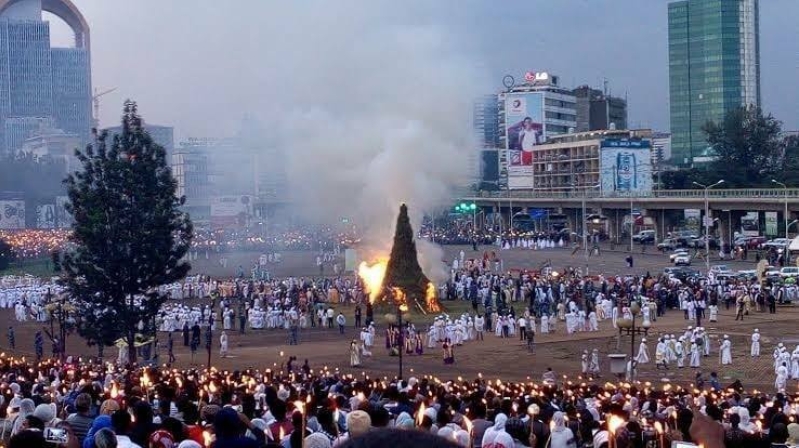
A revised constitution and new media regulations are redefining the relationship between Ethiopia’s deeply religious society, the media and the state, a new study has found. While the easing of media restrictions following the new media proclamation in 2021 has allowed religious organizations to apply for broadcasting licenses, Ethiopian authorities are taking a cautious approach to issuing broadcast permits.
The study, titled ‘Media and Religion in Ethiopia,’ notes that between 2021 and 2023, up to 50 religious organizations had applied for and acquired broadcasting licenses but the permits mask underlying restrictions in media and religious freedom.
“The broadcasting licenses do not permit local radio stations or transmission through terrestrial television but are a registration system to map organizations which use the internet and satellite to distribute religious programmes to Ethiopian audiences,” note the authors of the study, Mulatu Alemayehu Moges and Terje Skjerdal.
Instead, religious expression has found its way into mainstream media where presenters on state television “are seen wearing Orthodox crosses and Muslim hijabs, which was unheard of just five years ago.” The open confession of Prime Minister Abiy Ahmed as an evangelical Christian has also boosted the infusion of religion in the public arena since 2018.
According to the 2022 Report on International Religious Freedom, close to half (44 percent) of Ethiopia’s population of more than 114 million (mid-year 2022) are members of the Ethiopian Orthodox Church (EOC) while 23 percent identify as Christian Protestant. 31 percent are Muslims mainly occupying the southern and eastern parts of the vast country.
In a nation that prides itself in having its main religious denomination dating back to the baptism of the Ethiopian eunuch by apostle Philip, conversion from EOC to Protestant is not generally encouraged. But Muslim converts face ostracism and attacks by families, friends or Islamists. Open Doors ministry, which tracks Christian persecution, estimates that 15 Christians were killed for their faith in Ethiopia in 2023 while 284 churches and christian properties were attacked.
The study notes that tensions come to the fore during religious festivals and that this is when the independence of the media is tested. The state media tends to neglect or downplay religious conflict issues in the coverage.
“However, with the many private media outlets as well as the social media on the scene, it has become harder for the state media to control the narrative around religious issues altogether,” states Moges.
A Covid-19 ‘miracle’
A lockdown in 2020 due to the Covid-19 pandemic provided a divine opportunity. The state broadcaster, the Ethiopian Broadcasting Corporation (EBC), started daily one-hour religious programmes targeting faithfuls who could not attend in-person services. Soon, other state-affiliated and private stations followed EBC’s step.
“The programmes only lasted for about two months, but at that point they had already made a lasting change in the state media’s treatment of religion…the formerly strict policy against showing religious practice in the official media had eroded,” said one religious leader interviewed in the study.
Nevertheless, the expansion of this freedom is tied to the social cohesion that is enforced by the Ethiopian Media Authority (EMA). In a case that exemplifies the delicate balance between media freedom and religious rights, EMA temporarily withdrew the license of an Orthodox YouTube channel after it reported a drawn out conflict that involved the controversial appointment of 26 bishops.
State media firms deliberately avoid divisive religious topics and maintain their ‘neutrality’ as a principle of separation of state and religion. The independent media are more prone to give room for worldview and religion in their reporting. Outlets which have obtained a religious ‘broadcasting license’, however, are careful to avoid any conflict reporting in their programming.
“We calm down the people and follow the rules of the government,” said one manager of a religious TV station.
The authors of the study observe that the Ethiopian government continues to hold a tight rein on faith-based media outlets and in relation to religious media content. The authors note that this policy stands in contrast to that of other Sub-Saharan African countries.
The study interviewed 20 representatives from the media, religious leaders and the regulator. It also analyzed 98 stories on religion which made headlines in ten different media outlets between 2020 and 2023.





